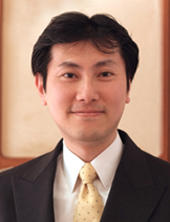OPINION PAPER
How Can Japan Overcome Two-Fold Political Alienation?
- The Destabilization of the Middle Class and the Emptying-Out
of the Political Mainstream -
As marked particularly by Britain’s withdrawal from the EU and the election of
Donald Trump in the US, the advanced nations have recently experienced
successive groundswells of popular rejection of established politics. A two-fold
political alienation – the destabilization of the middle class and the emptying-out of
the political mainstream – lies at the root of these phenomena. The Fourth
Industrial Revolution and globalization are exposing the middle class to anxiety
over job security and economic stress. In the political arena, established politics is
subject to relentless criticism, and the middle is being emptied out. As a nation that
is in the vanguard with respect to its experience of issues afflicting, or that will
afflict, the advanced nations, these phenomena are not irrelevant to Japan.
What prescription can we apply to the resolution of this two-fold political alienation?
In response to the destabilization of the middle class, the author proposes “core
citizens” as new central actors in Japanese society. By contrast with the
conventionalmiddle class, for which salary and career was the measure, the
standard for the definition of core citizens is the degree of awareness in relation to
life and society, and political and social functions. In response to the emptying-out of
the political mainstream, it will be necessary to reorganize party politics, seeking to
institute a party-based politics. Measures including fundamental reform of the
bicameral system and the institution of a system that strengthens the character of
the Diet as a deliberative assembly (while giving consideration to the
electionsystems employed in other countries) should be tabled for consideration.
What contemporary Japan needs is to mobilize its “core citizens” and to reorganize
party politics, in order to create a Japanese approach to a “two-track model of democracy.”



